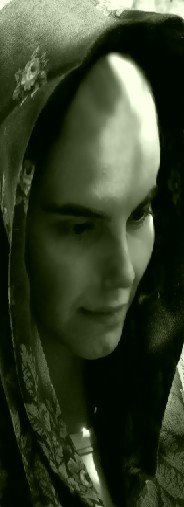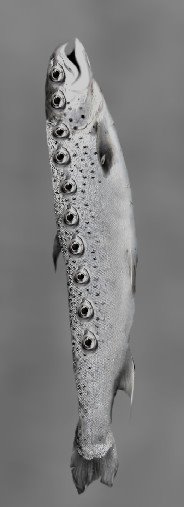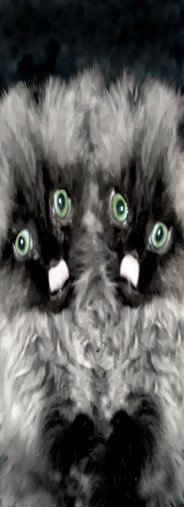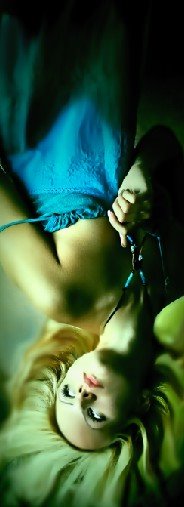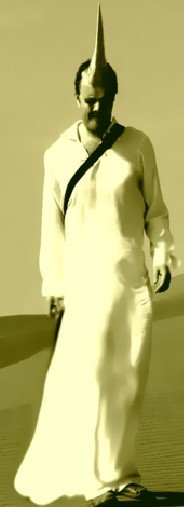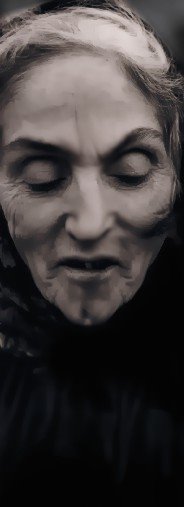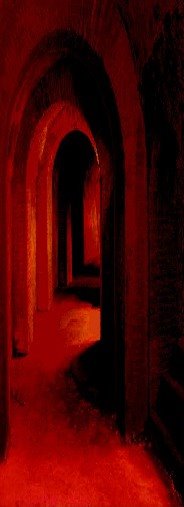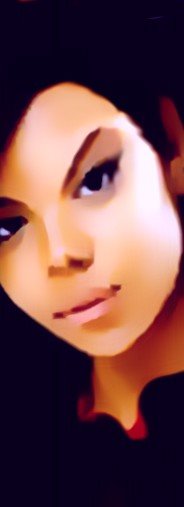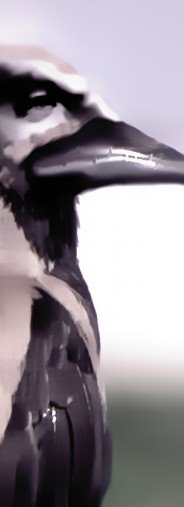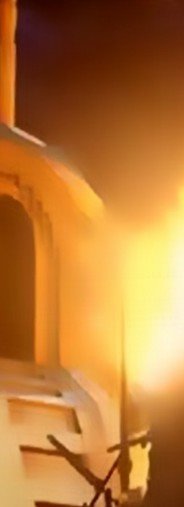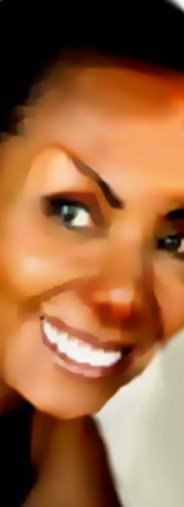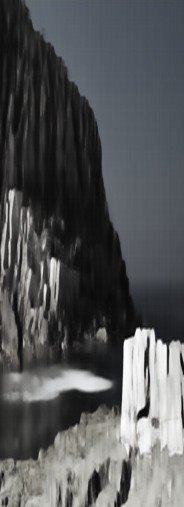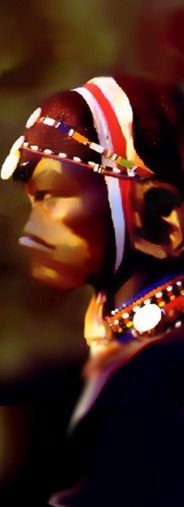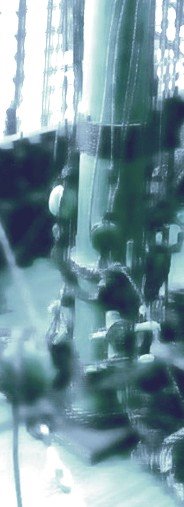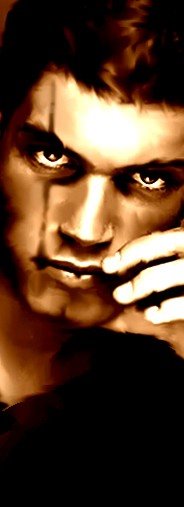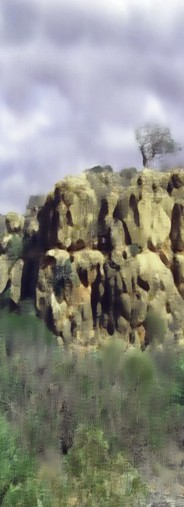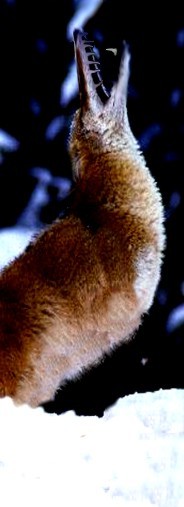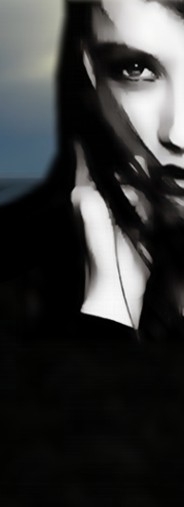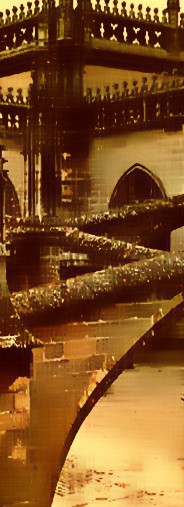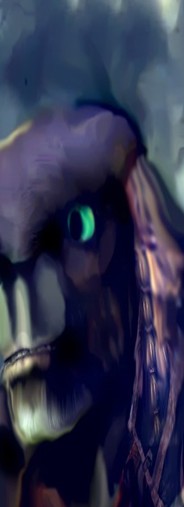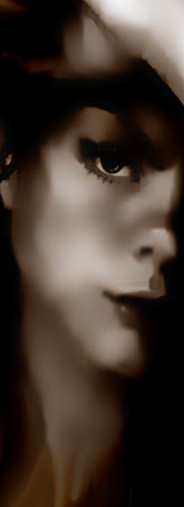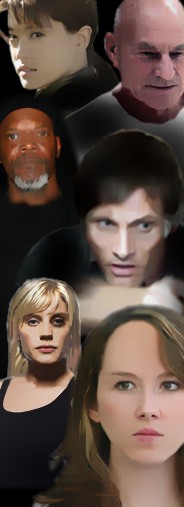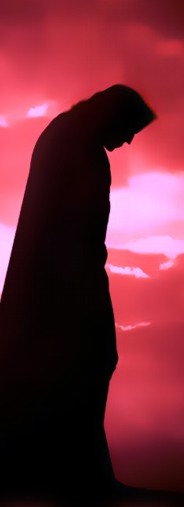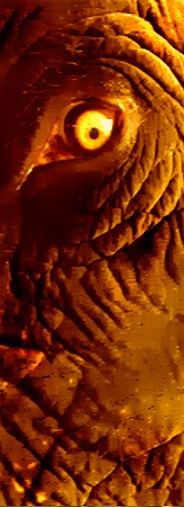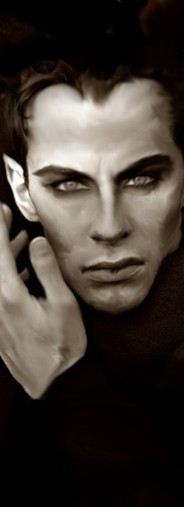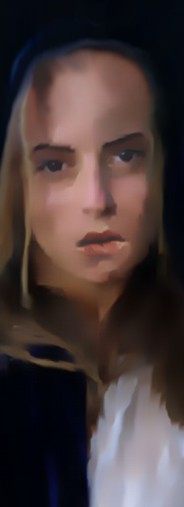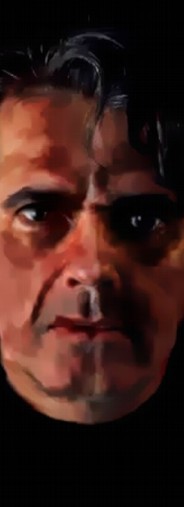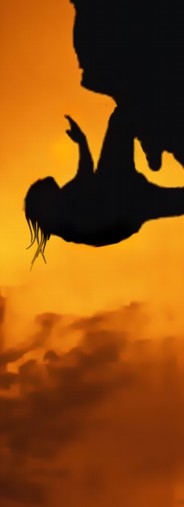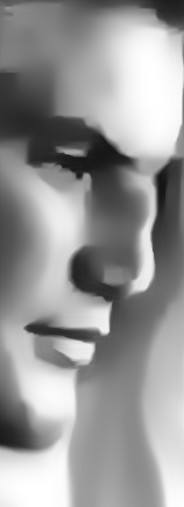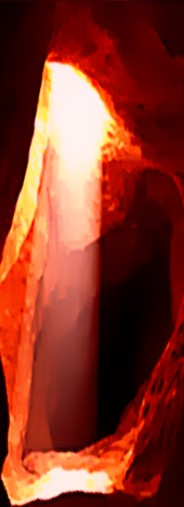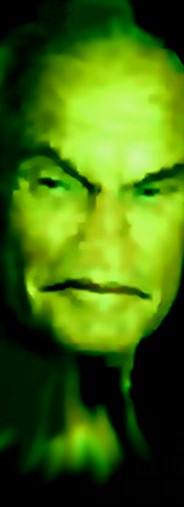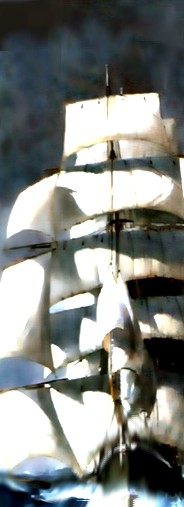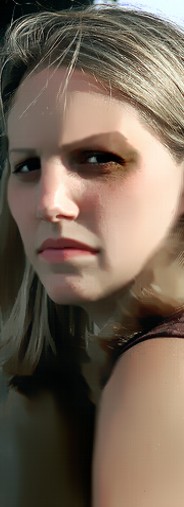I thought I'd concentrate on villains in this blog, but before I start, I'll quickly mention what I've been doing since the last post. Book One is finished and I've had the manuscript printed. Yesterday it was given to a friend to read. This is absolutely terrifying. No-one but me has read the book yet. I like it and I don't want to spoil the 100% popularity rating the book currently has. But it has to be done. Hopefully, I'll develop the epidermis of a garumph before I get my first criticism.
I have also spent a lot of hours between 8pm and 1pm most nights working on the Caliban's End wiki. It will be available for public consumption in September. It has a zillion links to pages dedicated to specific characters, races, places and anything else of note, so it's somewhat large (over 400 pages so far which is pretty big for a website). The wiki is basically my wikipedia for the book and it contains lots of information that isn't in the novel accompanied by pictures I have developed in Corel (such as the ones running down the right-hand side of this blog).
Anyway, onto the theme of this post.
Who are the villains in Caliban's End?
Arguably, Caliban is the villain, chiefly because he is the architect of much misery and destruction in the novel. He's guilty of terrible acts of cruelty and seems to have no moral compass - or perhaps one that swings chaotically on its axis rather than facing one particular direction.
Cruelty is something my villains seems to have in common, but whereas Caliban is cruel because he has been deeply hurt, others in the novel are cruel just because they can be. I have used this element in numerous chapters to define my villains. I find cruelty abhorrent and whilst the displays of it make for uncomfortable reading - Lucetious' treatment of Samuel Melkin in Chapter Six is a passage I still find hard to read - I hope it evokes an emotional response in the reader, a desire to see that cruelty stopped and ultimately avenged.
For me, intellect is a crucial quality in a novel's antagonist. I know literature is replete with villains who lack intellect, but for me the presence of a sharp mind makes the villain more... well... villainous. Throughout this book, readers will notice the motif of 'Siege', a game loosely based on chess. This motif is emblematic of the strategies and machinations that characterise the inner workings of Caliban's mind. In this, he is akin to famous villains such as Conan Doyle's Professor Moriarty and Tolkien's Saruman, who possess brilliant minds, however misguided their thinking may be.
There is also something of Conrad's Kurtz in Caliban. It is true he has been altered by his isolation and Wade's journey into The Endless reminds us of Marlow's journey into the heart of darkness. Like Kurtz, Caliban has turned himself into a charismatic overlord of all the tribes in his dark realm and this seems to move him into a morally ambiguous state of mind.
I do have sympathies for Caliban. That is not to say I agree with what he does, but I do not find him as repugnant as other villains in the novel. In some ways he is like Javert in Les Miserables: I feel for him and can understand his motives though not agree them.
Fairly Mild Spoiler ahead: Similarly, I do feel for Lokasenna. Originally she was just written as a cold, heartless bitch, someone who was so aloof she was incomprehensible much like the lady who used to work in the ticket booth at the Balwyn theatre. In Lokasenna's 'feature' chapters (Chapter 21: Assipattle River and Chapter 25: Hollow Hills) you'll really grow to hate her, but when I re-read these chapters, I felt hatred was too simple an emotion to elicit from a reader - I felt she lacked depth as a character. This led me to write an entire chapter (Chapter: 13: Nilfheim) devoted to her backstory. I also rewrote quite a few earlier chapters to develop this element further. Now, she's the type of character that places the reader in a quandary - she's a victim first, then an antagonist. I like this dichotomy as it makes readers oscillate in their feelings towards her, which hopefully makes for more interesting reading.
Like Richard III, Darth Vader and Peter Pettigrew, Caliban and Lokasenna are villains with a physical deformity – it is no coincidence that both father and daughter share the same loss - their left hand. (There are quite a few symbolic reasons for this, as well as playful ones such as the fairly obvious homage being paid to Star Wars). Also, the leprosy that has infected Caliban's body reflects the way his desire for revenge has eaten at his soul. His fall into villainy is reflected in his physical devolution.
Caliban is - no pun intended - my Shakespearean villain. Through him the themes of betrayal and revenge are explored. With Caliban, I had a lot of scope to explore the psychological qualities of a villain and I'm happy with his complexity. Whilst archetypal in some respects, Caliban is also intricate, a quality I like in my villains.
He piled upon the whale's white hump the sum of all the general rage and hate felt by his whole race from Adam down; and then, as if his chest had been a mortar, he burst his hot heart's shell upon it. --Chapter 41 (Moby Dick)
Hopefully readers will detect something 'classical' about the book's titular character. Like Melville's Captain Ahab (who also lost a limb), Khan in Star Trek's The Wrath of Khan (who quotes Moby Dick as he dies) and Picard in First Contact, Caliban becomes obsessive in his efforts to find his enemy. Caliban's relentless pursuit of his twin brother has hints of the same self-destructive aspect, a fact heightened by the novel's title Caliban's End. Is the title a deliberate attempt to mislead the reader? The question of whether the quest for revenge kills Caliban is answered at the end of the novel (Chapter 46: The Endless). You'll have to wait till then to find out.
If I may digress for a moment... my love of Moby Dick is evident in Chapter 5: Jurojin Straits. There is a scene just before Trojanu commences his final attack upon a terrifying sea beast that echoes the tension felt between Starbuck and Ahab before the final confrontation with the white whale. I love putting in these literary nods; hopefully readers will pick up on these. If not, I could always write a Cliff Notes type appendix to acknowledge and explain them!
It is true that Caliban suffers from the overconfidence that often characterises the dispositions of many villains. Part of this is justified by his incredible intellect and resourcefulness, but I must admit that this is also a plot device which leads to exposition that breaks down his intricate plans so that the reader may understand them. Does Caliban's overconfidence leads to his downfall as is so often the case with archetypal villains? Again, you'll have to wait to find out but rest assured - I have made sure I have avoided the clichés of this convention e.g. I don't think he is guilty of many of the flaws you'd find on the Evil Overlord List , it's worth checking out at http://www.eviloverlord.com/lists/overlord.html
Now a quick comment on some other unsavoury characters:
Maeldune - in a way he's modelled on the French aristocracy who cared nothing for those beneath them. Like some of the great villains in literature and movies, some of the worst acts of evil associated with Maeldune are actually performed by his subordinates. Maeldune rarely gets his own hands dirty.
Maeldune is also an opportunist. If you've ever read Mervyn Peake's Gormenghast, Maeldune is much like Steerpike - he will do whatever he has to to push himself forward, to satiate his all-consuming ambition. He's Machiavellian and gets away with far more than he should. I like the way that Maeldune doesn't outwardly show his anger. He remains calm, polite, methodical and dispassionate, even in the midst of committing acts of murder and deceit. His treatment of Jolon Bligh (Chapter 10: Garlot) highlights how villainous he can be.
And then there's the Ghul. I have tried to supply a range of naughty and nasty types, from the quick-witted realist to the dim-witted fool. Lucetious is cool and calculating, the closest thing the Ghul have to Caliban - it is no wonder that these two have a relationship of sorts. Others like Defecious and Spulla are stupid to the point of being comedic. The only thing that stops their foolishness being slapstick is that they are difficult to kill making them formidable (albeit stupid) enemies. Chabriel is cruel and slow to anger but once angered she is something to be feared. She is more like Maeldune.
Ghul such as Craddock and Gormgut are thugs. Evil without intellect. In Gormgut's case, I modelled his persona on the one of the yokels you would find in films like Mississippi Burning or Deliverance. It is the absence of intellect in these characters' cases that makes them threatening - their capacity to commit mindless acts of violence: "I'm gonna skin you alive." Whilst these characters are useful to colour a scene, I believe it is the more complicated and conflicted villains that hold the reader's interest.
Then there are villains who are so far outside contemporary moral sensibilities that they cannot be truly understood. The Cabal creature known as Succellos is an example of this. Succellos is vampiric and has absolutely no concern for anything but her own rapacious appetite. She is totally lacking in any of the principles that guide most people's action. It is not her heinous acts that are important; rather it is the reactions of characters to her that is important - she is a foil, through which other characters are defined (specifically Samuel Melkin, Porenutious Windle and Trypp). This literary device is alluded to in Joss Whedon's Firefly:
"Live with a man forty years. Share his house, his meals, speak on every subject, then tie him up, and hold him over the volcano's edge, and on that day, you will finally meet the man."
- Shepherd Book, "War Stories" written by Cheryl Cain
The book has quite a few other villains but I don't want to spoil your appetite. Also their reveals are big moments in the book (which you can enjoy late September when I plan to go to print).
Showing posts with label Shakespeare. Show all posts
Showing posts with label Shakespeare. Show all posts
Saturday, June 30, 2007
Monday, April 09, 2007
To Kill a Yafflebird
The other day my little girl put on a pair of overalls and looked just like Scout in Harper Lee's To Kill a Mockingbird (only prettier).
About an hour ago, I finished my final draft of Chapter 11 which is set in a rain-soaked, fog-filled swamp, about as far away from Maycomb, Alabama as one can get. However, I wanted to capture something of the feeling I had when I read the first few chapter of Lee's beautiful novel. There are a few flashbacks in Chapter 11, all concentrated upon the character of Sir Edgar Worseley. The extract below is from a flashback that reads like a mixture of the antics of Jem, Scout and Dill and the sort of thing I'd do with a friend when my parents weren't looking.
Dominic, the younger of the two boys, snuggled down in the orange pile of leaves and shot his brother an impish grin. Edgar grinned back then snatched up handfuls of surrounding leaves and covered his younger brother's head until was completely obscured. Content with Dominic's autumnal disguise, Edgar then ran off down the footpath to a tall, decrepit house surrounded by weeds and dead flowers. The occupant of the house, an ornery, retired public official who was only known by the moniker Taxman Tomkins, was seated in a rocking chair ready to hurl abuse at anyone unfortunate enough to come within earshot. Taxman was renowned for his cantankerous disposition and spent most of his day scowling at passers-by, insulting any who had the misfortune to look his way.
The old man's jaw dropped when he saw young Edgar Worseley kick open his gate and come running down his garden path hollering at him to get up and follow. Ignoring all Taxman's protestations, Edgar spun a tremendous story explaining how the mayor had summoned the old man to his chambers, requiring fiduciary advice regarding a complicated taxation issue. Grumbling as he went, Taxman hobbled down the broken footpath, trying to keep up with Edgar who stopped from time to time to hurry up the old man.
Upon reaching an unusually large pile of leaves outside the Worseley house, Taxman Tomkins stopped to regain his breath. It was at that moment, the mound of leaves exploded and Dominic Worseley leapt out of his foliaceous crypt with a groan that would chill the bravest heart. He then danced around the old man like some crazed beast before running off down the street to join his brother who was rolling on the ground, his entire body wracked with maniacal laughter.
Now I've finished the chapter, I have to say, it's my favourite thus far. I think it is certainly the most well-written chapter. It has a wonderfully tragic aspect that I don't want to spoil here. The character of Edgar is comic, noble and tragic all in one. This chapter also has a few really good twists and it manages to wrap up a lot of the exposition about Caliban without slowing down the story.
I like a lot of the things I invented for this chapter such as the yaffle birds, the bogcrabs and Mag Mel's memory-inducing odours. The smells of the swamp being a stimulant for memories worked really well, especially when Edgar experiences a memory he had long-forgotten but proved to be extremely significant in the context of the story.
"When nothing else subsists from the past, after the people are dead, after the things are broken and scattered· the smell and taste of things remain poised a long time, like souls· bearing resiliently, on tiny and almost impalpable drops of their essence, the immense edifice of memory"
-Marcel Proust The Remembrance of Things Past
I am really enjoying using flashbacks as a means to illuminate aspects of plot and character. This is something that has been a part of the book since the start, but I think I am getting a lot better at using them. Although I lost interest in the TV show Lost (no pun intended) when I heard the writers believed they had at least seven seasons' worth of shows (I'm not that patient - I can't wait seven years for answers) I did like the way flashbacks in that show sometimes threw certain scenes into a completely different context, and sometimes made you feel differently about a character.
When I think about it, the book does have quite a few similarities with Lost - the ensemble cast, the multi-layered narrative, the themes of loyalty, revenge, sins of the past etc. I can also see comparisons could be drawn between Caliban's End and Heroes for similar reasons. I wouldn't mind being compared to Heroes when it comes down to it. I think the mapping of the plot in that show is brilliant and I love the way the seemingly disparate threads are slowly being pulled together.
Speaking of Heroes, last week the true name of Sylus was revealed - Gabriel Grey. The name Sylus came from the watch he was wearing when he killed his first victim. The surname Grey is applicable on a symbolic level and perhaps the name Gabriel (meaning 'Man of God') is also significant. Without giving too much away, I also use names in a similar fasion. The character of Tripp is a playful homage to Odysseus from Homer's epic, the surname Grayson is significant especially considering the ambiguity of the Morgai inheritance (grey + son) and Caliban is named after the deformed monster of Shakespeare's The Tempest.
...you're an old hand at deception.
And you lied to me so much,
about the world, about myself,
that you ended up imposing on me
an image of myself:
underdeveloped, in your words, undercompetent
that's how you made me see myself!
And I hate that image...and it's false!
-Act 3, Scene 5
"Une Tempete" by poet Aimé Césaire.
I even use the name Gabriel but saying any more would be a major spoiler!
Anyway, Chapter 11 is done and I'm only four chapters away from concluding the first book. The last chapter in the first book is fittingly set in a city called Terminus. I hope to be posting a blog on finishing that chapter by the end of autumn. Time will tell.
About an hour ago, I finished my final draft of Chapter 11 which is set in a rain-soaked, fog-filled swamp, about as far away from Maycomb, Alabama as one can get. However, I wanted to capture something of the feeling I had when I read the first few chapter of Lee's beautiful novel. There are a few flashbacks in Chapter 11, all concentrated upon the character of Sir Edgar Worseley. The extract below is from a flashback that reads like a mixture of the antics of Jem, Scout and Dill and the sort of thing I'd do with a friend when my parents weren't looking.
Dominic, the younger of the two boys, snuggled down in the orange pile of leaves and shot his brother an impish grin. Edgar grinned back then snatched up handfuls of surrounding leaves and covered his younger brother's head until was completely obscured. Content with Dominic's autumnal disguise, Edgar then ran off down the footpath to a tall, decrepit house surrounded by weeds and dead flowers. The occupant of the house, an ornery, retired public official who was only known by the moniker Taxman Tomkins, was seated in a rocking chair ready to hurl abuse at anyone unfortunate enough to come within earshot. Taxman was renowned for his cantankerous disposition and spent most of his day scowling at passers-by, insulting any who had the misfortune to look his way.
The old man's jaw dropped when he saw young Edgar Worseley kick open his gate and come running down his garden path hollering at him to get up and follow. Ignoring all Taxman's protestations, Edgar spun a tremendous story explaining how the mayor had summoned the old man to his chambers, requiring fiduciary advice regarding a complicated taxation issue. Grumbling as he went, Taxman hobbled down the broken footpath, trying to keep up with Edgar who stopped from time to time to hurry up the old man.
Upon reaching an unusually large pile of leaves outside the Worseley house, Taxman Tomkins stopped to regain his breath. It was at that moment, the mound of leaves exploded and Dominic Worseley leapt out of his foliaceous crypt with a groan that would chill the bravest heart. He then danced around the old man like some crazed beast before running off down the street to join his brother who was rolling on the ground, his entire body wracked with maniacal laughter.
Now I've finished the chapter, I have to say, it's my favourite thus far. I think it is certainly the most well-written chapter. It has a wonderfully tragic aspect that I don't want to spoil here. The character of Edgar is comic, noble and tragic all in one. This chapter also has a few really good twists and it manages to wrap up a lot of the exposition about Caliban without slowing down the story.
I like a lot of the things I invented for this chapter such as the yaffle birds, the bogcrabs and Mag Mel's memory-inducing odours. The smells of the swamp being a stimulant for memories worked really well, especially when Edgar experiences a memory he had long-forgotten but proved to be extremely significant in the context of the story.
"When nothing else subsists from the past, after the people are dead, after the things are broken and scattered· the smell and taste of things remain poised a long time, like souls· bearing resiliently, on tiny and almost impalpable drops of their essence, the immense edifice of memory"
-Marcel Proust The Remembrance of Things Past
I am really enjoying using flashbacks as a means to illuminate aspects of plot and character. This is something that has been a part of the book since the start, but I think I am getting a lot better at using them. Although I lost interest in the TV show Lost (no pun intended) when I heard the writers believed they had at least seven seasons' worth of shows (I'm not that patient - I can't wait seven years for answers) I did like the way flashbacks in that show sometimes threw certain scenes into a completely different context, and sometimes made you feel differently about a character.
When I think about it, the book does have quite a few similarities with Lost - the ensemble cast, the multi-layered narrative, the themes of loyalty, revenge, sins of the past etc. I can also see comparisons could be drawn between Caliban's End and Heroes for similar reasons. I wouldn't mind being compared to Heroes when it comes down to it. I think the mapping of the plot in that show is brilliant and I love the way the seemingly disparate threads are slowly being pulled together.
Speaking of Heroes, last week the true name of Sylus was revealed - Gabriel Grey. The name Sylus came from the watch he was wearing when he killed his first victim. The surname Grey is applicable on a symbolic level and perhaps the name Gabriel (meaning 'Man of God') is also significant. Without giving too much away, I also use names in a similar fasion. The character of Tripp is a playful homage to Odysseus from Homer's epic, the surname Grayson is significant especially considering the ambiguity of the Morgai inheritance (grey + son) and Caliban is named after the deformed monster of Shakespeare's The Tempest.
...you're an old hand at deception.
And you lied to me so much,
about the world, about myself,
that you ended up imposing on me
an image of myself:
underdeveloped, in your words, undercompetent
that's how you made me see myself!
And I hate that image...and it's false!
-Act 3, Scene 5
"Une Tempete" by poet Aimé Césaire.
I even use the name Gabriel but saying any more would be a major spoiler!
Anyway, Chapter 11 is done and I'm only four chapters away from concluding the first book. The last chapter in the first book is fittingly set in a city called Terminus. I hope to be posting a blog on finishing that chapter by the end of autumn. Time will tell.
Labels:
bogcrabs,
Caliban,
Chapter 11,
Edgar Worseley,
flashbacks,
Heroes,
Lost,
Mag Mel,
memory,
names,
Shakespeare,
The Tempest,
To Kill a Mockingbird,
yaffle birds
Subscribe to:
Posts (Atom)






